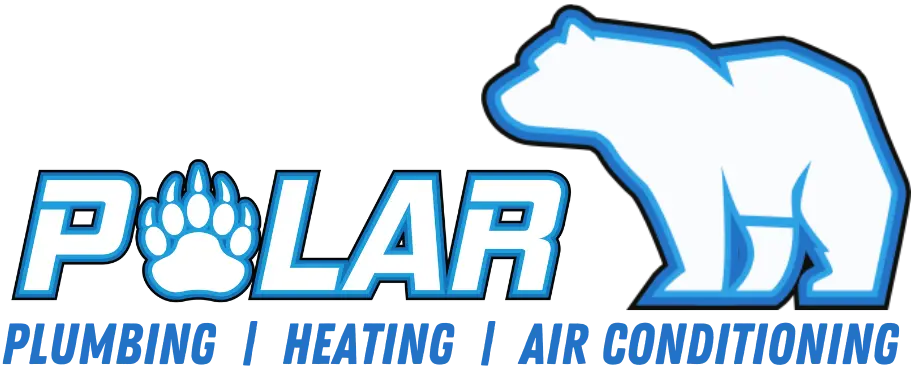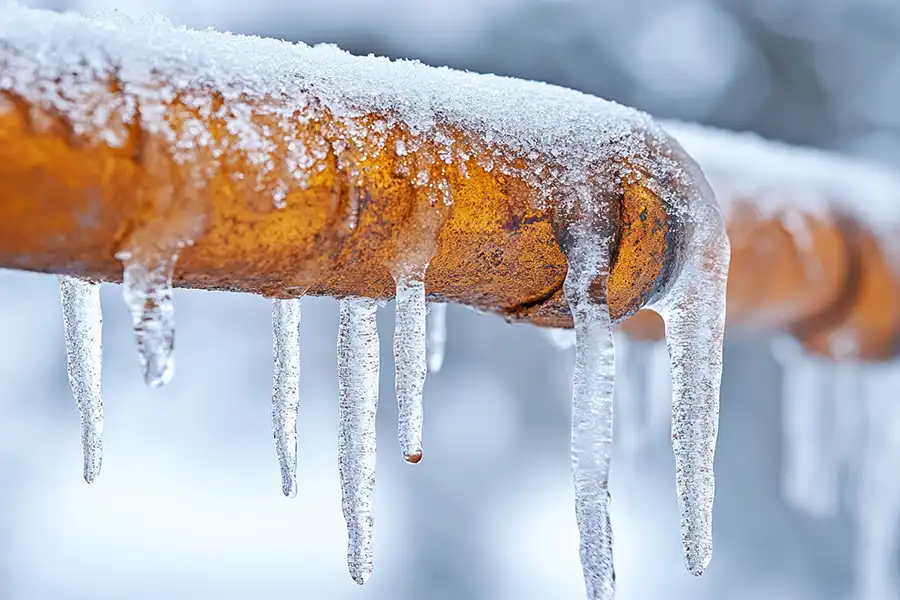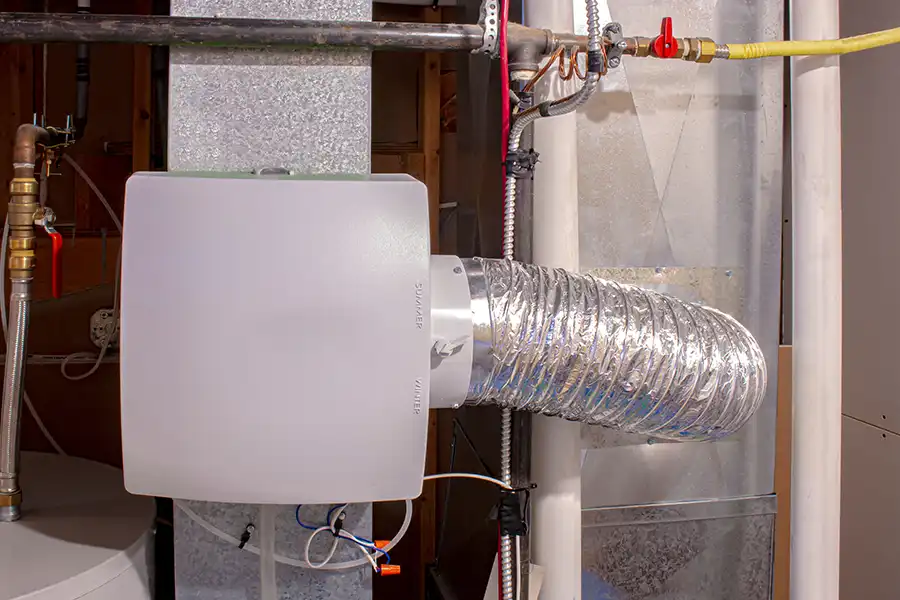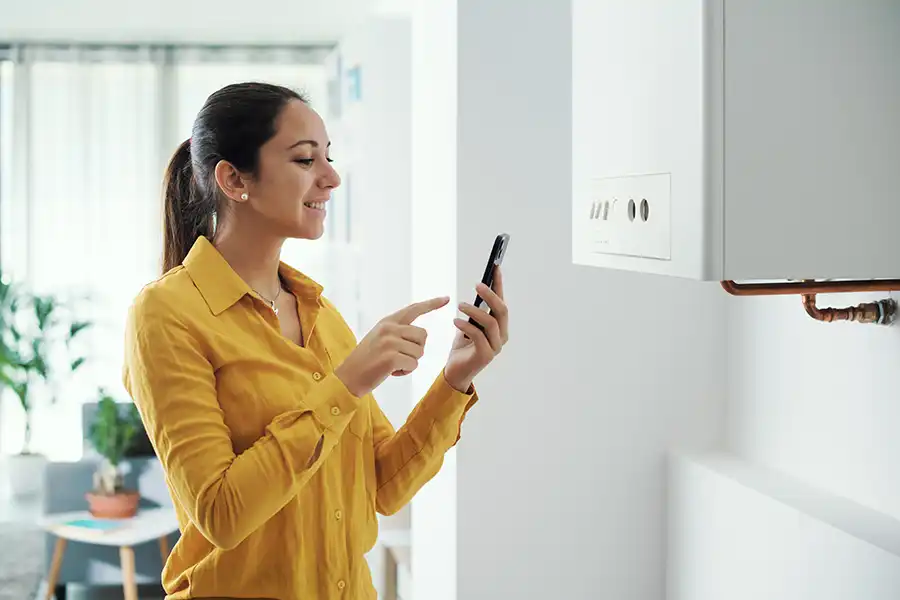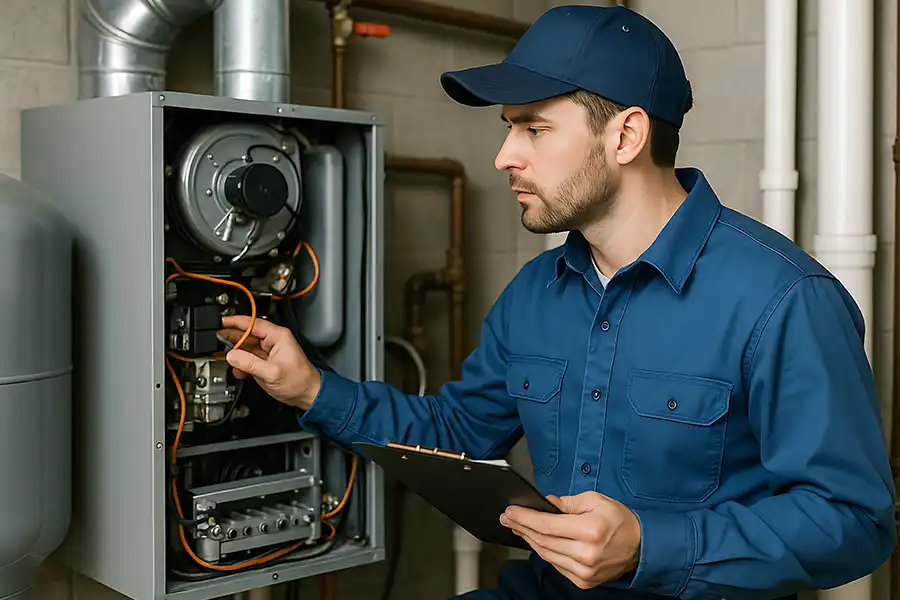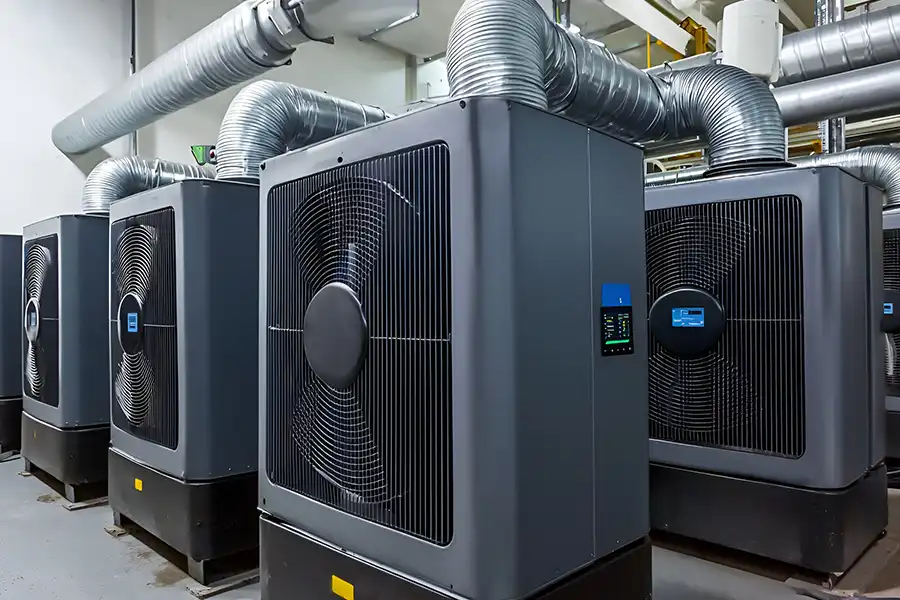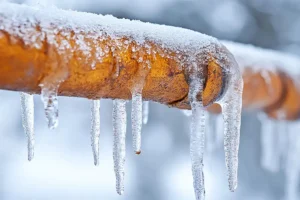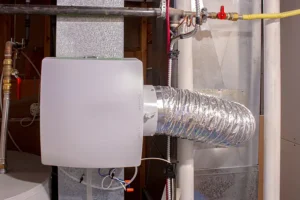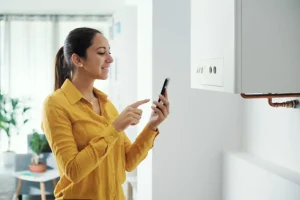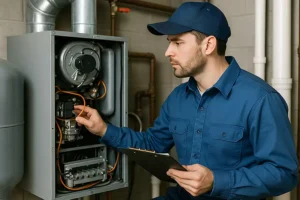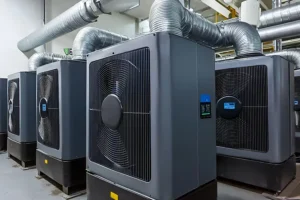When it comes to improving your home’s water quality, two primary systems often come up: water filters and water softeners. While they may sound similar, these two systems serve different purposes and address different water quality issues. For homeowners in Collinsville, IL, understanding the distinctions between water filters and water softeners can help you make informed decisions about which system best fits your needs. At Polar, your plumbing, heating, and cooling experts, we want you to have clean, safe, and high-quality water in your home. In this blog, we’ll explore the main differences between water filters and water softeners, how each one works, and the benefits they offer.
Purpose of Water Filters and Water Softeners
The main difference between a water filter and a water softener is the specific problem each system addresses. A water filter is designed to remove impurities from the water, such as chlorine, lead, bacteria, and sediment, which can affect taste, odor, and overall safety. Water filters are essential for households looking to improve their drinking water quality and eliminate contaminants that could pose health risks.
A water softener, on the other hand, doesn’t remove contaminants but focuses on reducing water hardness, which is primarily caused by high levels of minerals like calcium and magnesium. Hard water can lead to scale buildup in pipes, appliances, and fixtures, as well as dry skin and hair. By softening the water, a water softener helps prevent scale formation, extends the lifespan of plumbing, and improves the efficiency of household appliances.
How Water Filters Work
Water filters use various filtration methods to remove contaminants. Common filter types include activated carbon, reverse osmosis, and UV filtration. Activated carbon filters are especially effective at reducing chlorine, which improves taste and smell, while reverse osmosis systems can remove a wide range of contaminants, including lead and pesticides. UV filters, meanwhile, neutralize bacteria and viruses, making water safer to drink.
Most water filtration systems are installed at the point of use, such as under a kitchen sink, but whole-house water filtration systems are also available for those wanting cleaner water throughout the home. For families concerned with drinking water quality or wanting to minimize exposure to potentially harmful substances, a water filter is an ideal choice.
Benefits of Water Filters for Your Home
Installing a water filter can bring numerous benefits to your home and health. A high-quality filtration system improves the taste and smell of your drinking water, often removing the chlorine and chemicals that can make tap water less enjoyable. By filtering out contaminants like lead, pesticides, and heavy metals, water filters also offer added peace of mind, as these pollutants can have serious health implications over time.
Water filters can be particularly beneficial if you have young children, elderly family members, or anyone with a compromised immune system, as filtered water is generally safer and cleaner. Additionally, using filtered water in cooking and beverage preparation can enhance flavor, making it a simple way to improve your household’s overall quality of life.
How Water Softeners Work
Water softeners, by contrast, use a process called ion exchange to reduce the concentration of hard minerals like calcium and magnesium. In this process, hard water passes through a tank filled with resin beads that carry a sodium charge. As the water flows through, the calcium and magnesium ions are swapped for sodium ions, effectively “softening” the water by removing the minerals that cause hardness.
Water softeners are typically installed as whole-house systems, treating all the water that enters the home. For households dealing with issues like scale buildup, soap scum, or increased energy costs due to hard water, a water softener is an invaluable solution.
Benefits of Water Softeners for Your Home
A water softener can also bring significant benefits, particularly for homeowners dealing with hard water issues. The most noticeable benefit is the reduction in scale buildup within pipes and appliances. Hard water can leave mineral deposits in plumbing, leading to clogs and reducing the efficiency of water heaters, dishwashers, and washing machines. By softening the water, you can extend the lifespan of these appliances and decrease maintenance and energy costs.
Water softeners also help prevent the tell-tale signs of hard water, like soap scum, streaky dishes, and stiff laundry. Softer water can improve skin and hair health, making it easier to lather soap and shampoo and reducing the potential for dry or irritated skin. By investing in a water softener, you’re not only protecting your plumbing system but also enhancing comfort and convenience in daily routines.
When to Choose a Water Filter or Water Softener (Or Both)
If you’re looking to improve the taste, smell, and safety of your drinking water, a water filter is the best choice. For homeowners dealing with hard water issues, especially those with scale buildup or lathering difficulties, a water softener will better address your needs. Some homes may benefit from using both systems, as each has unique benefits.
For instance, pairing a water softener with a drinking water filter can provide comprehensive water quality improvement, treating hardness while also ensuring safe, contaminant-free water for drinking and cooking. Consulting with a water expert like Polar can help determine the best setup for your home, depending on your water quality issues, lifestyle, and budget. Contact our team today!
Get Expert Help from Polar to Improve Your Home’s Water Quality
Whether you’re dealing with hard water, want to ensure safer drinking water, or need a combination of both, Polar is here to help. Our experienced team in Collinsville, IL, can assess your home’s water quality and recommend the best solutions to meet your needs. With our professional installation and maintenance services, you can trust that your water filter or softener system will perform optimally, providing you with peace of mind and quality water every day. Call Polar today at 618.772.7007 to learn more about our plumbing, heating, and cooling services and find the ideal water solution for your home!
